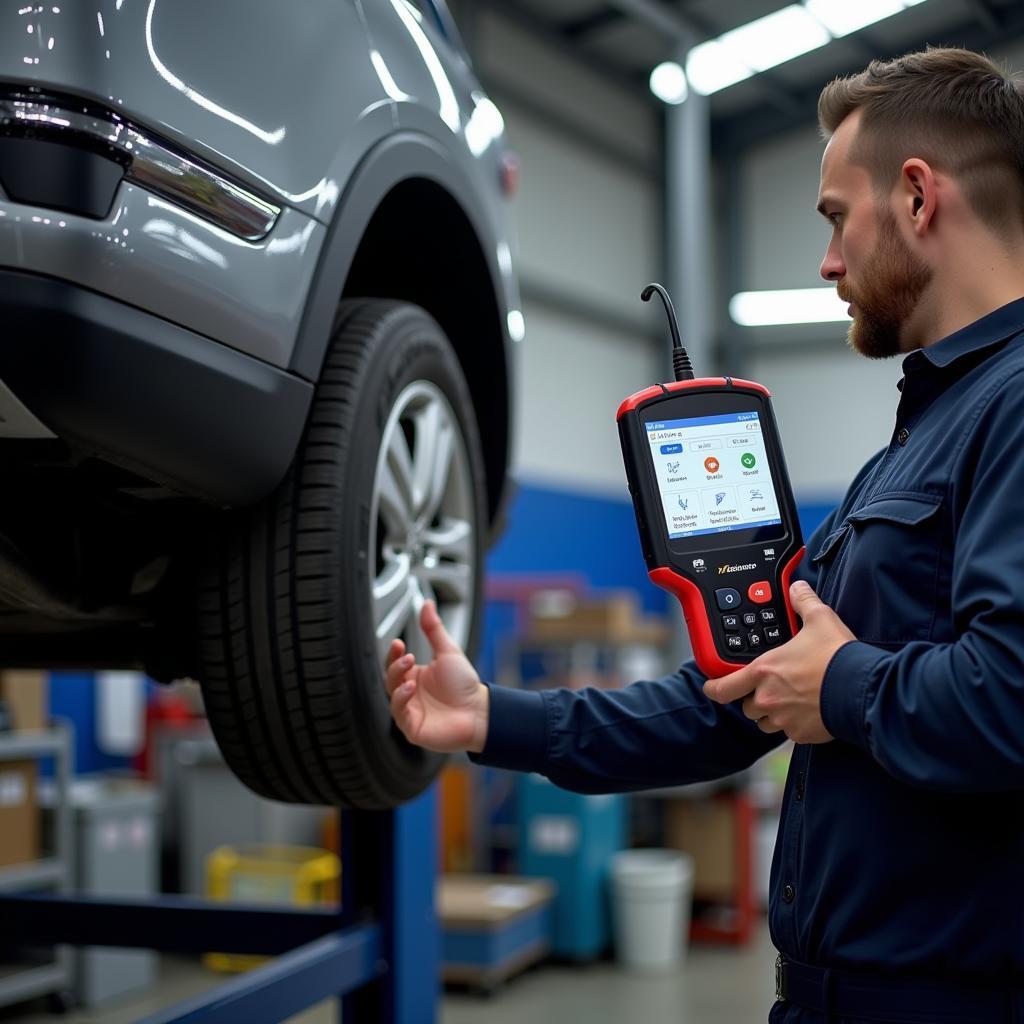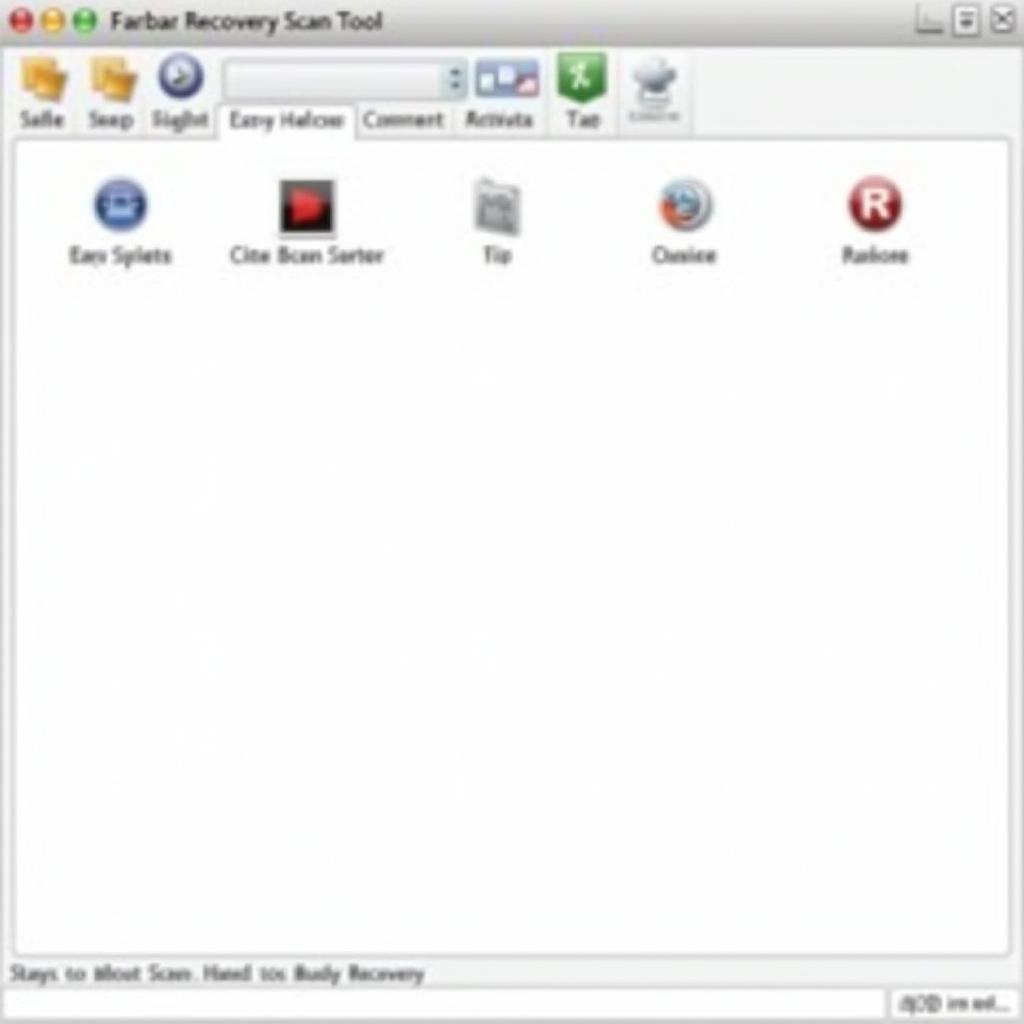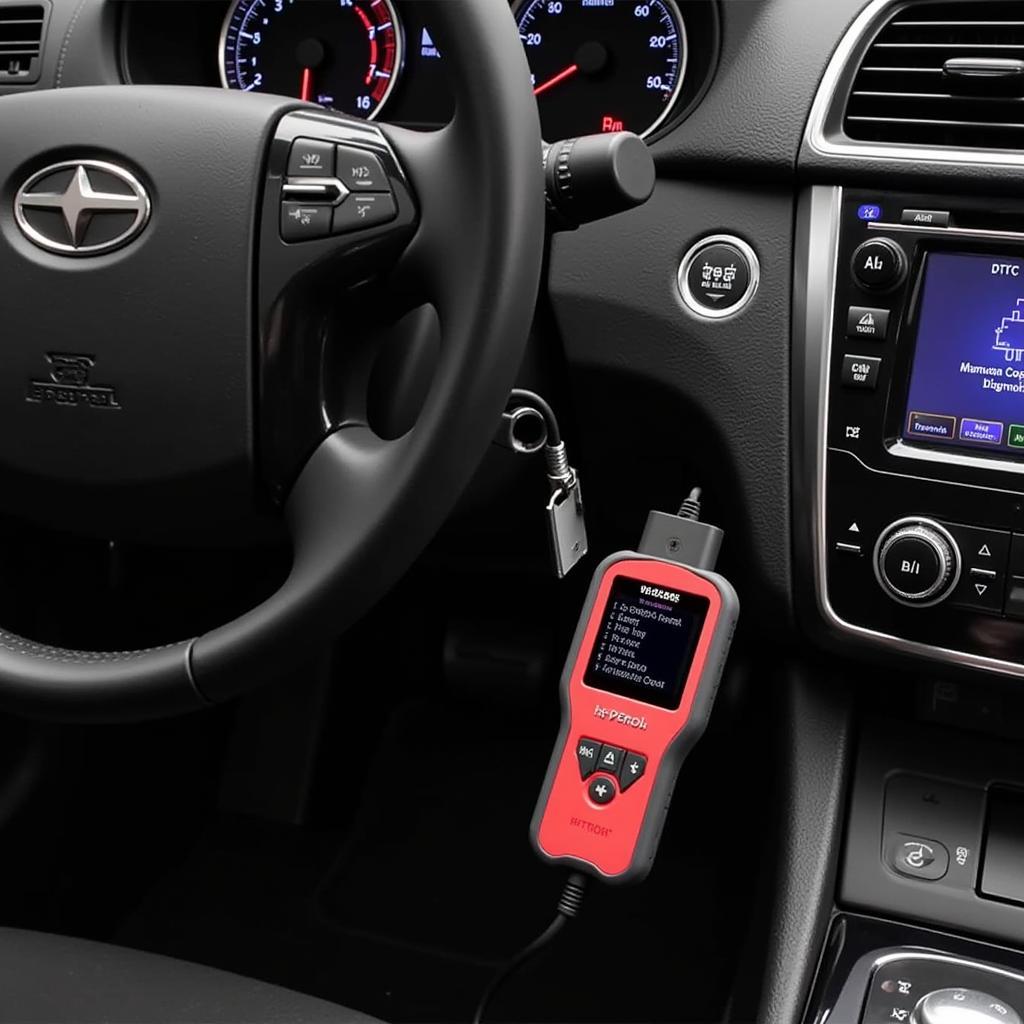Finding the right TPMS scan tool in St. Louis doesn’t have to be a chore. Whether you’re a car owner looking for a quick fix, a garage owner needing reliable equipment, or a seasoned technician seeking advanced diagnostics, understanding TPMS and the tools available is crucial. This comprehensive guide will equip you with the knowledge to make informed decisions about your TPMS needs in St. Louis.
Why is TPMS Important?
Tire Pressure Monitoring Systems (TPMS) are essential safety features in modern vehicles. They constantly monitor tire pressure, alerting you if a tire is significantly underinflated. Properly inflated tires are critical for:
- Safety: Underinflated tires can overheat, increasing the risk of blowouts and accidents.
- Fuel Efficiency: Underinflation increases rolling resistance, forcing your engine to work harder and consume more fuel.
- Tire Longevity: Correct tire pressure ensures even tread wear, extending the life of your tires.
Types of TPMS Systems
Understanding the two main types of TPMS systems is essential when selecting a scan tool:
1. Indirect TPMS: This system doesn’t use physical sensors in the tires. Instead, it relies on the wheel speed sensors from the Anti-lock Braking System (ABS) to estimate tire pressure indirectly.
2. Direct TPMS: This system utilizes individual sensors within each tire valve stem to directly measure tire pressure and temperature. If a deviation from the recommended pressure is detected, the sensor transmits a radio signal to the vehicle’s ECU, triggering a dashboard warning light.
What Does a TPMS Scan Tool Do?
A TPMS scan tool is an electronic device specifically designed to communicate with your vehicle’s TPMS system. It allows you to:
- Read sensor IDs and pressure data: Quickly identify faulty sensors and verify tire pressure readings.
- Program new sensors: Essential when replacing sensors or swapping tires.
- Trigger sensors: Force sensors to transmit data for diagnostics and system checks.
- Diagnose system faults: Read and clear TPMS-related Diagnostic Trouble Codes (DTCs).
Choosing the Right TPMS Scan Tool in St. Louis
With numerous TPMS scan tools available in St. Louis, selecting the right one can seem daunting. Consider these factors to narrow down your choices:
- Vehicle Compatibility: Ensure the tool is compatible with the make, model, and year of the vehicles you service.
- Functionality: Determine the features you need, such as sensor programming, DTC reading, and OBDII compatibility.
- Ease of Use: Look for a user-friendly interface with clear instructions and intuitive navigation.
- Durability and Build Quality: Choose a tool that can withstand the rigors of daily use in a shop environment.
- Budget: TPMS scan tools range in price from basic models to feature-rich professional units. Determine your budget and prioritize features accordingly.
 TPMS Scan Tool in Use
TPMS Scan Tool in Use
Expert Insight:
“Investing in a quality TPMS scan tool is crucial for any shop serious about providing comprehensive automotive service,” says John Miller, a seasoned automotive technician with over 20 years of experience. “A good tool not only saves you time and effort but also allows you to offer a valuable service to your customers, ensuring their safety and satisfaction.”
Benefits of Using a TPMS Scan Tool
Using a TPMS scan tool offers numerous benefits for car owners, garages, and technicians alike:
- Increased Safety: Accurately monitoring tire pressure enhances safety for both drivers and passengers.
- Improved Fuel Economy: Properly inflated tires optimize fuel efficiency, saving you money on gas.
- Extended Tire Life: Maintaining correct tire pressure ensures even tread wear, extending tire lifespan.
- Time Savings: A TPMS scan tool streamlines the diagnostic and repair process, saving valuable time.
- Enhanced Professionalism: Offering TPMS services using specialized tools enhances your garage’s professionalism and credibility.
TPMS Scan Tool St. Louis: Contact Us
Navigating the world of TPMS and scan tools can feel overwhelming. If you have any questions or need assistance finding the right TPMS scan tool in St. Louis, don’t hesitate to contact us. Our team of experts at ScanToolUS is ready to help you find the perfect solution for your needs.
ScanToolUS
Phone: +1 (641) 206-8880
Office: 1615 S Laramie Ave, Cicero, IL 60804, USA
Frequently Asked Questions (FAQs)
1. How often should I check my tire pressure?
It’s recommended to check your tire pressure at least once a month and before long trips.
2. What does the TPMS warning light look like?
The TPMS warning light usually looks like an exclamation mark inside a horseshoe shape.
3. Can I replace a TPMS sensor myself?
While it’s possible, it’s recommended to have TPMS sensor replacement done by a qualified technician to ensure proper installation and programming.
4. Do I need a new TPMS sensor every time I get new tires?
Not necessarily. TPMS sensors typically last for several years. However, it’s good practice to have them inspected when getting new tires.
5. Can I program a new TPMS sensor myself?
Programming new TPMS sensors requires a specialized scan tool. It’s best to consult your vehicle’s owner’s manual or a trusted technician for guidance.
6. How much does a TPMS scan tool cost?
TPMS scan tools vary in price depending on features and functionality. Basic models start at around [price range], while professional-grade tools can cost upwards of [price range].
7. Where can I get my TPMS serviced in St. Louis?
Numerous automotive shops and dealerships in St. Louis offer TPMS services.



